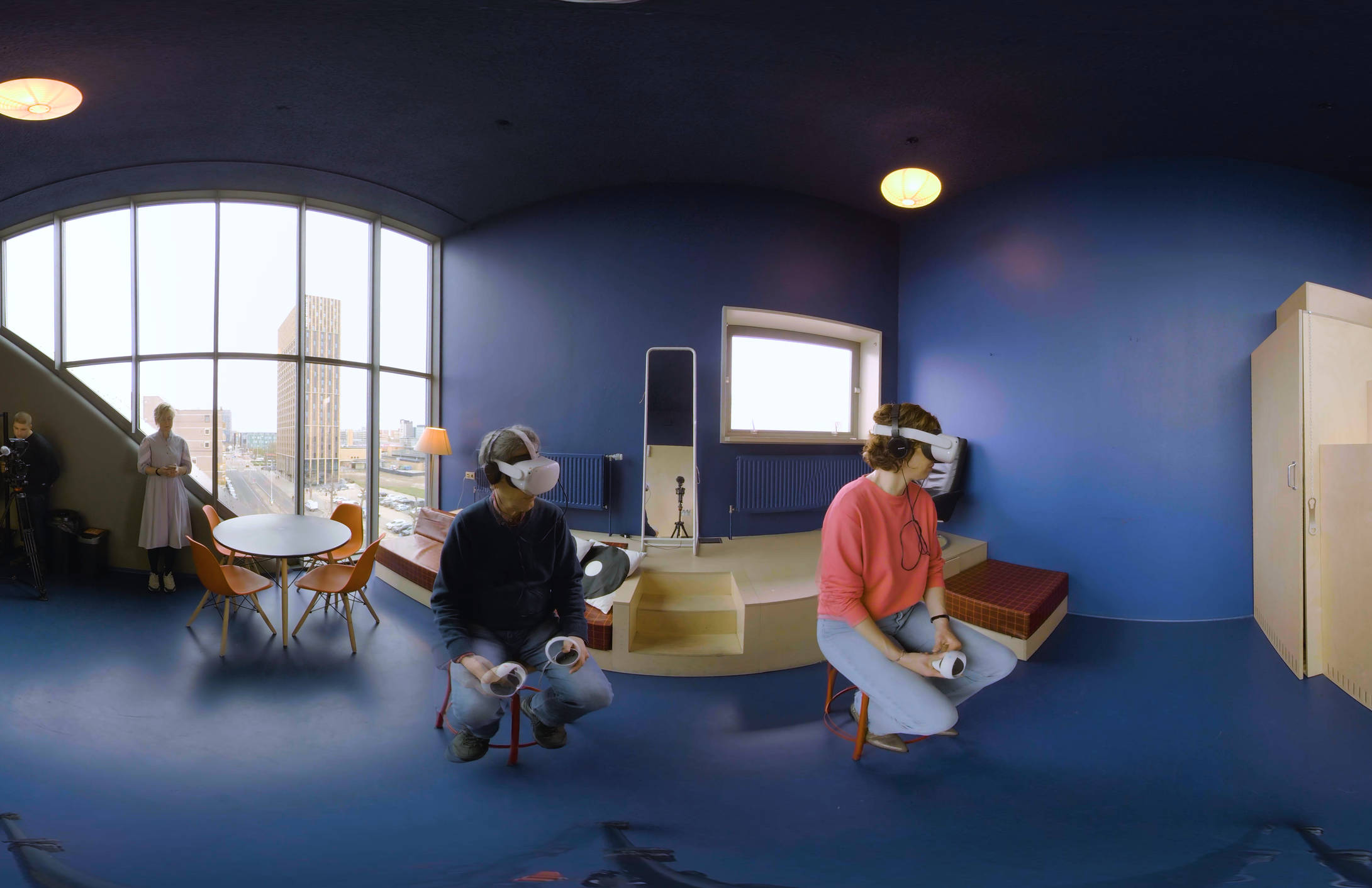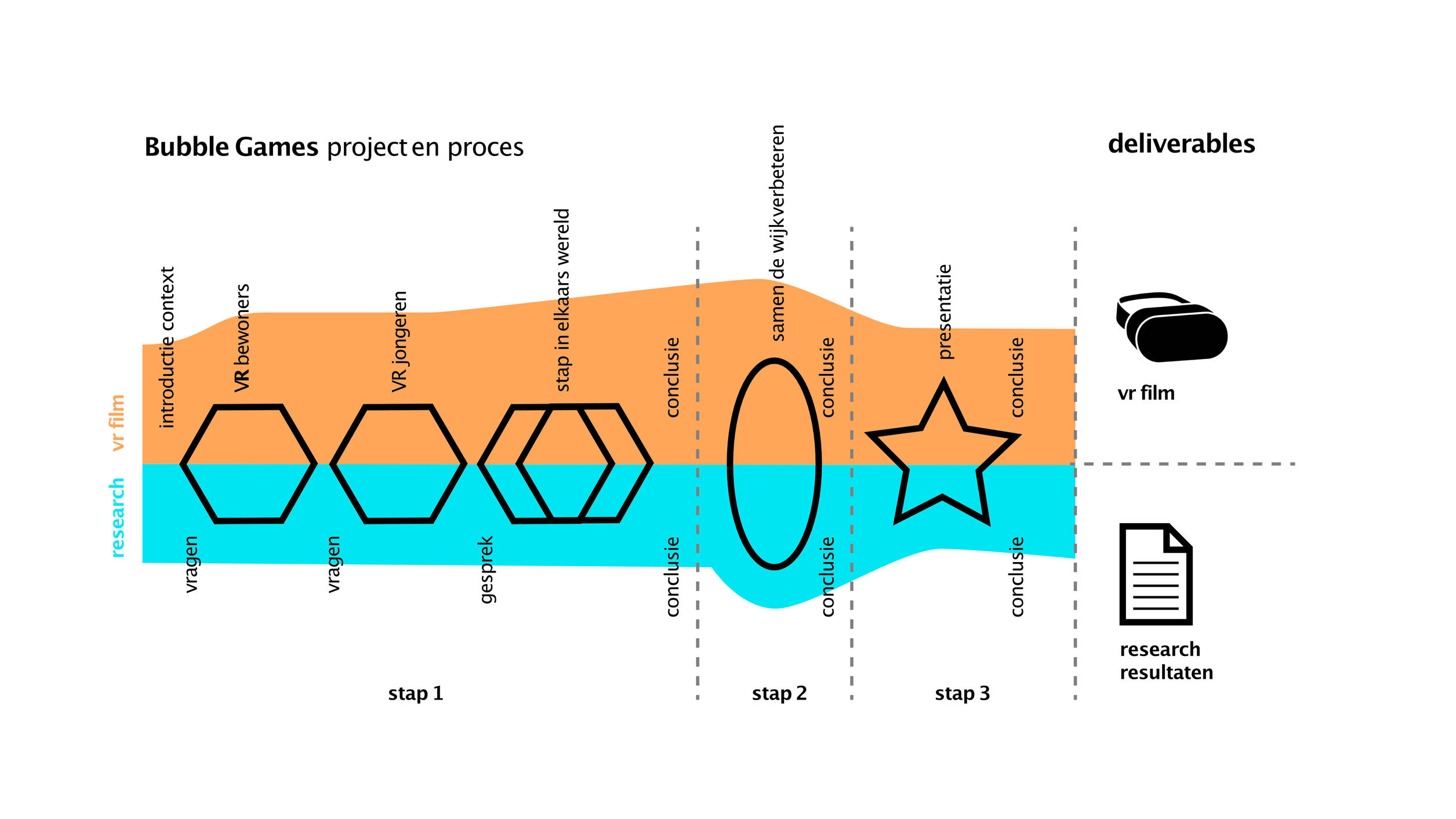Bubble Games

How do you design empathy? And can VR technology play a role? In this project, we explore whether tensions between groups - which can lead to polarization - can be tempered by designing empathy. Basing our work on social design and research, we use VR technology to allow groups to step into each other's worlds.

VR as a tool against polarization
The project was carried out by the Bubble Games consortium, under the umbrella of the Fieldlab Social Cohesion, an initiative of music venue De Effenaar in Eindhoven. The consortium consists of the Municipality of Eindhoven, Fabrique, LB MGMT, TU Delft, VR Gorilla, Fonkeling and Fontys.
Experiment
The project used a case study that zoomed in on tensions between residents of a shopping center and young visitors of the center in the Meerhoven neighborhood of Eindhoven. There is currently no active conflict, but there are considerable irritations between the young people and the residents that could potentially lead to major problems. So, with a team of designers, researchers and experts, we set out to find solutions. The goal was to gain knowledge about how to design empathy, using a real-world case. This experiment is the start of a long-term project to develop knowledge-based means of mitigating tensions.

VR Technology
An intervention was designed in the form of a journey. This was tested in practice with two young adults (Andy and Bram) and two residents (Pierre and Tjitske). The four did not know each other but were each affected by tensions in the shopping center. After an intake interview with the participants, Virtual Reality recordings were made in their homes and in the neighborhood. They then stepped into each other's worlds in VR and were immersed, as it were, in the other's daily concerns in order to gain a better understanding of each other.
The effect has exceeded expectations. Just eight minutes (the duration of the participants' clips) was enough to gain a great deal of understanding for the other person. After the viewing, the residents and young people worked together in co-creation to come up with ideas for the local problems. The idea also arose to organise a contest among residents. The four participants jointly presented these ideas to the Eindhoven City Council.

As if I already knew you...
Before we started, we declared the experiment would be successful if it helped narrow the gap between the two sides. After extensive research by TU Delft, we can conclude that empathy among participants has increased significantly. All of them felt like they already knew each other through the VR movies, hence the title “ As if I already knew you...". They now understand each other better and are eager to contribute to social cohesion in the neighborhood. Whether the tensions in the neighborhood are reduced by interventions like this in the longer term remains to be seen.
In November 2022, the Dutch newspaper Het Parool published an interesting article about the Bubble Games project. Read the translation of this article: "We want to fight polarization by designing empathy".
What’s next
This part of the project demonstrated that when design and research go hand in hand, tools can be developed to address societal problems. But this is just the beginning. Fontys University of Applied Sciences has taken up the gauntlet to see if a “pocket version” can be developed based on the insights gained.
Want to watch the VR movie?
We are organizing viewings of the VR film with our project partners. If you are interested professionally or for any other reason, please send us an email and we'll let you know when the next viewing is.